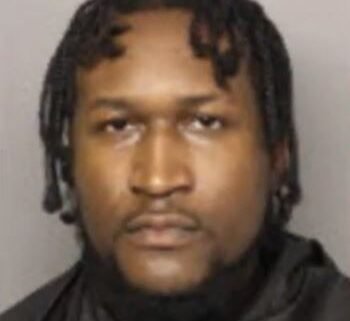Some Nebraska parents say teachers overstepped authority by asking kids pronouns

By Joe Dejka
Click here for updates on this story
OMAHA, Nebraska (Omaha World-Herald) — Publicly declaring one’s chosen gender pronouns has become a trend in some business correspondence and social media profiles.
Volunteering one’s pronouns is seen as a sign of sensitivity and solidarity with people of various gender identities, and also a way to avoid mistaken identity.
But should public school teachers ask children to reveal their identity?
Parents say that’s happening in some Nebraska schools.
Parents of children attending the Papillion La Vista, Lincoln, Omaha, Hastings and Cozad districts told The World-Herald that teachers asked their children in middle and high school to indicate their choice of pronouns.
Several parents said this was done without them knowing or approving.
Officials with the Papillion La Vista Community Schools said teachers who asked for the pronouns did so because they wanted to make students of diverse gender identities feel welcome in class.
Not all teachers in Papillion La Vista did it, and there was not a districtwide directive for them to do it, spokeswoman Annette Eyman said.
“It’s meant with the best of intentions to include kids and create a climate in the classroom where all kids feel a connection to the teacher,” she said.
Nationally, the issue of how schools should handle gender identity pronouns in schools has been contentious.
Nebraska Attorney General Doug Peterson announced last week that Nebraska has joined 19 other states in suing the Biden administration over its interpretation of federal anti-discrimination laws as they apply to gender identity, including the use of pronouns.
Part of the states’ complaint takes aim at a “fact sheet” put out by the U.S. Department of Education that suggests that if a student’s classmates or teacher failed to use a student’s chosen pronouns, that would be grounds for a federal discrimination investigation.
The Nebraska parents said asking kids their pronoun choice infringes on parental rights. They said asking that of a minor is suggestive and will cause greater anxiety and gender confusion among students, particularly those who were not previously questioning their gender.
A math or Spanish teacher who asks for pronouns, they said, doesn’t necessarily have the credentials to counsel students on their gender choices.
The parents question why teachers don’t just get that information directly from a parent.
Abby Vacek said her 12-year-old son’s English teacher in the Hastings Public Schools split the class into groups of four or five students and instructed them to introduce themselves to one another and tell one another their pronouns.
Her son told her that it made him uncomfortable.
Vacek said she’s sympathetic to students who are experiencing gender confusion and “having a rough go, and I absolutely want to be sensitive to that.”
But introductions can be handled without bringing up gender identity, she said.
“There’s no need to insert gender into it at all,” Vacek said. “I don’t remember having to introduce myself as ‘Hi, I’m Abby, and I’m a girl.’ “
“It just seems like they’re introducing an idea that is, for most people, confusing, and especially at that age, extra confusing,” she said. “And you might get kids questioning something they were never questioning before because they didn’t know they had a choice.”
She believes that the teacher had good intentions, for the most part, but didn’t think through the consequences.
Michelle Vavra, whose 14-year-old son is in eighth grade at Buffett Middle School in the Omaha Public Schools, said several teachers asked him for pronouns.
She said her son was asked to fill out a questionnaire. It asked what pronouns he preferred, giving examples of he/him/his, she/her/her and they/their/theirs.
The questionnaire asked, “What pronouns do you use in school?” and “What pronouns do you use in front of the people in your household?”
Laura King, who has two boys in the Papillion La Vista district, said she was not informed ahead of time that teachers were doing it.
She learned about it only when her son sent her a picture from class.
King said her 13-year-old son at Papillion Middle School was instructed to make a “name tent,” a kind of nameplate.
The math teacher instructed him to put his pronouns on it.
“My 13-year-old is still figuring out his own body,” King said. “How in the world is he going to be making these decisions?”
King said her 16-year-old son at Papillion La Vista South High School also was asked for his preferred pronouns.
If school officials want gender identity information on a child, they could ask parents to provide it on the routine health forms they fill out, she said.
“I feel for the kids that make the wrong decision right now,” King said. “What if at 13 years old, they decide that they think they’re nonbinary, and in a few years, they realize, ‘Whoa, I had no idea what I was doing.’”
Eyman, the Papillion La Vista spokeswoman, said some of the district’s high school and middle school teachers requested pronouns, but officials do not believe that elementary teachers were doing it.
Eyman said a committee of teachers at Papio South created a PowerPoint presentation that encouraged that school’s teachers to ask students for their pronouns.
“They showed it to all staff with the principal’s approval,” she said.
The PowerPoint by the school’s Cultural Competence Committee cited elevated suicide rates for LGBTQ youths nationally and said students with access to spaces that affirmed their sexual orientation and gender identity reported lower rates of attempting suicide.
It further said the district’s LGBTQ students have indicated that they feel most included when teachers use accurate names and pronouns.
In response to a World-Herald records request, Papillion La Vista officials said the district has no policy regarding teachers asking students for a student’s identity.
Eyman said these situations are frequently handled privately among teachers, counselors, the principal and parents.
“To do that in front of a classroom without parents’ knowledge is not where we are philosophically as a school district,” she said.
An official with the Papillion La Vista teachers union declined to comment.
The World-Herald submitted records requests to multiple other districts asking if they had a policy governing teachers asking children for pronouns. The following districts all indicated that they do not have a formal policy: Millard, Ralston, Douglas County West, Lincoln, Westside, Gretna, Bennington, Springfield Platteview and Elkhorn.
“We work individually with students and families on their gender identification,” Douglas County West Superintendent Melissa Poloncic said. “Any particular arrangements with families and students are handled on a case-by-case basis.”
Nichole Baugh, spokeswoman for the Springfield Platteview Community Schools, said that if there is a student with any specific need to be met, it is handled on an individual basis.
“Privacy, discretion and parental involvement are always taken into consideration,” she said.
Bellevue Public Schools has a pronoun policy.
Under the policy, transgender students have the right to be addressed and referred to by a name and pronoun that corresponds with the student’s gender identity, “as determined by the parent and student.”
The Bellevue policy doesn’t address asking students for pronouns, but it states that district employees may not intentionally refuse to refer to a student by the name or pronoun identified as corresponding with the student’s affirmed gender identity.
The district’s privacy guidance says transgender students have the right to discuss and express their gender identity and expression openly and to decide when, with whom, and how much private information to share.
OPS has a guidance document that addresses pronouns for transgender and gender expansive students.
OPS’s Gender Identity Equity Guidelines don’t specify whether teachers should ask for that information, at what grade levels asking would be appropriate, or whether parental approval is needed before a teacher asks a student.
The guidance says that if an OPS student reveals to a teacher or staff member that they identify a certain way, teachers and staff will adopt and use the child’s preferred pronouns, regardless of whether a parent agrees or disagrees.
The director of a Nebraska advocacy group for LGBTQ youths said students should have autonomy to identify in the ways that feel most affirming to them.
Abbi Swatsworth, executive director of OutNebraska, said most children can categorize their own gender as young as 3 or 4, making it appropriate to make space for middle and high school students to share their pronouns if they are comfortable doing so.
“Recommended practice would be to use a form for the classroom that is private between the teacher and student and to recognize that not every student will choose to share,” she said.
Advocacy groups for LGBTQ youths, in partnership with the American Civil Liberties Union and the National Education Association, produced a guide for teachers.
The document says that consistently using a transgender student’s chosen name and pronouns signals that the speaker is respecting and affirming the student’s gender identity.
“Although seemingly minor,” the guide says, “these simple actions can have a profound effect on the student’s experience.”
Please note: This content carries a strict local market embargo. If you share the same market as the contributor of this article, you may not use it on any platform.


